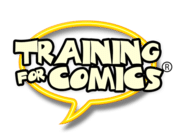4 Infallible Keys for Enthusiastic Writers with Little Time
Have you ever felt that your passion for writing clashes with the reality of your busy schedule? You’re not alone. In this article, we’ll discover how to turn that overflowing enthusiasm into tangible progress, even when the clock seems to be against you. Get ready to unlock the potential of your creativity with strategies that adapt to your fast-paced lifestyle.
The Modern Writer’s Dilemma: Enthusiasm vs. Time
Oscar Wilde said that to be a good writer you have to “Write, write and write, and in your spare time, read”. Wise advice, no doubt, but what happens when your “spare time” is as scarce as the blank pages in your manuscript?
The reality is that many aspiring writers find themselves trapped between their burning desire to create and the relentless demands of everyday life. But don’t despair, because you’re about to discover how to juggle your passion and your responsibilities in a way that will surprise you.

In the image, we see a writer focused in front of their computer, symbolizing the daily challenge of finding time to write amidst a busy life. This scene reminds us that, despite obstacles, there are always ways to make space for our creative passion.
1. The Art of Sculpting Time: Create Your Writing Schedule
Imagine your time as a block of marble and you are Michelangelo, ready to sculpt your masterpiece. The key is to find those hidden moments in your day that, like veins in the stone, are waiting to be discovered and utilized.
Start by examining your daily routine with a critical eye. Is there a two-hour space on Sunday mornings? Maybe you can wake up 30 minutes earlier each day? Remember, we’re not looking for an uninterrupted 8-hour block; we’re hunting for those golden moments where your mind is fresh and your creativity can flow freely.
Once you’ve identified your window of opportunity, treat it with the same respect you’d give to an important appointment. Block that time in your calendar and defend it as if it were the last drop of ink in a desert of ideas. Click here to discover how to optimize your creative time and turn every minute into literary gold.
Remember, consistency is your best ally. It’s better to write 30 minutes every day than to attempt a 5-hour marathon once a month. Your brain will get used to this new habit and, over time, you’ll enter “writer mode” almost automatically during your scheduled sessions.
2. The Single Project Strategy: Focus Your Creative Energy

In this image, we observe a writer completely immersed in their work, surrounded by notes and with a look of intense concentration. This scene perfectly illustrates the power of focusing on a single project at a time, allowing all our creative energy to flow towards a specific goal.
When inspiration strikes, it’s tempting to want to embrace every brilliant idea that crosses your mind. However, for the writer with limited time, this is a recipe for stagnation and frustration. The solution: adopt the “single project” mindset.
Imagine your creative energy as a laser beam. Focused on a single point, it can cut through steel. Dispersed, it barely heats the surface. Similarly, focusing on a single story at a time will allow you to delve deeper and make significant progress, even with limited time.
This doesn’t mean you should ignore those sparks of inspiration for new projects. Instead, cultivate the habit of taking brief notes about these ideas and then returning to your main project. Consider these notes as seeds you’ll plant in the future, once you’ve harvested the fruits of your current work.
Want to boost your creative focus? Explore resources here to keep your mind centered and productive in each writing session.
3. Your Literary Adventure Companion: The Writer’s Notebook

The image shows a writer with their notebook open, capturing ideas in the moment. This scene encapsulates the essence of always being prepared for when inspiration strikes, no matter where you are.
In today’s fast-paced world, inspiration doesn’t wait for you to be sitting in front of your computer. It arrives at the most unexpected moments: while waiting for the bus, during your coffee break, or just before falling asleep. This is where your new best friend comes into play: the writer’s notebook.
This seemingly simple tool is actually your portable portal to the world of ideas. Whether it’s an elegant leather notebook or an app on your smartphone, the important thing is that it’s always within reach, ready to capture those flashes of brilliance that arise at the most unexpected moments.
Use your notebook for more than just plot ideas. Write down dialogues you hear on the street, describe that peculiar character you saw on the subway, or sketch the landscape that captivated you during your commute. These fragments of reality are the fuel that will feed your writing when you sit down to create.
Moreover, the act of handwriting has an almost magical effect on creativity. Studies have shown that handwriting activates parts of the brain associated with learning and memory, which can stimulate your creative process in ways that typing simply can’t match.
Enter here to perfect the art of capturing ideas on the fly and transform your everyday moments into material for your next masterpiece.
4. Accelerate Your Growth: The Power of Writing Classes

The image transports us to a creative writing class, where we see a diverse group of writers sharing and discussing their work. This collaborative environment is fundamental for the growth and development of any writer, providing inspiration, feedback, and mutual support.
Imagine having a gym for your creativity, a place where you can strengthen your narrative muscles under expert guidance and in the company of other passionate individuals like yourself. That’s exactly what writing classes offer.
Enrolling in a writing course not only provides you with invaluable technical knowledge but also creates a structure in your life that prioritizes your passion. Suddenly, you have a weekly commitment dedicated exclusively to your development as a writer. It’s like having a date with your muse, and the universe conspires to make space in your schedule.
These courses come in all sizes and shapes, from intensive weekend workshops to year-long programs. The important thing is to find one that fits your schedule and goals. In addition to formal lessons, you’ll gain:
- Constructive feedback from instructors and peers
- Deadlines that will keep you accountable and productive
- A community of writers that will inspire and support you
- Exposure to different styles and techniques that will broaden your repertoire
The assignments and exercises you’ll receive will force you to write regularly, helping you overcome writer’s block and develop a creative discipline. It’s like having a personal trainer for your imagination.
Ready to take your writing to the next level? Discover learning opportunities here and take the leap your literary career needs.
The Power of Routine: Building Solid Writing Habits
Establishing a writing routine is like planting a garden: it requires patience, constant care, and a bit of faith. At first, it may seem like you’re not accomplishing much, but over time, you’ll see how your efforts bear abundant fruit.
Start by choosing a specific time of day to write. It could be early in the morning, before the world wakes up and the demands of the day begin to pile up. Or perhaps you prefer the quiet hours of the night, when the hustle and bustle has calmed down and you can immerse yourself in your imaginary world without interruptions.
The key is consistency. It doesn’t matter if you can only dedicate 15 minutes a day; what’s crucial is that those 15 minutes are sacred. Treat them as an unavoidable appointment with yourself and your creativity. Over time, you’ll notice that your mind adapts to this rhythm, and ideas will begin to flow more easily during your scheduled writing sessions.
Consider creating a ritual that marks the beginning of your writing time. It can be something as simple as preparing a cup of tea, lighting a scented candle, or putting on headphones with soft instrumental music. These small acts serve as signals to your brain, indicating that it’s time to enter creative mode.
The Importance of Reading in the Creative Process
As a writer, your mind is your most valuable tool, and reading is the fuel that keeps it sharp and functioning optimally. Reading not only exposes you to new ideas and writing styles but also helps you develop your own vocabulary and sense of narrative rhythm.
Try to diversify your literary diet. If you normally read science fiction novels, try a book of poetry or a historical essay. This exposure to different genres and styles can inspire new ways of approaching your own writing and broaden your creative horizons.
Moreover, reading can be an excellent way to “write” when you don’t have time to sit in front of the keyboard. While reading, your mind is absorbing narrative structures, dialogue techniques, and methods for building tension. All of this filters into your subconscious and emerges later in your own writing.
Consider keeping a reading journal where you can jot down phrases that impact you, interesting techniques you observe, or ideas that inspire you for your own projects. This habit will not only improve your understanding of what you read but also create a valuable resource you can turn to when you need inspiration.
The Magic of Editing: Polishing Your Work
Many novice writers focus exclusively on the act of writing, forgetting that editing is an equally crucial part of the creative process. Editing is where your rough work transforms into a polished gem, ready to shine before the eyes of the world.
An effective strategy is to completely separate the writing and editing processes. During your writing sessions, allow your ideas to flow freely without worrying too much about perfect grammar or structure. This approach will help you maintain creative momentum and avoid the dreaded writer’s block.
Then, schedule specific sessions for editing. Approach your work with fresh eyes, ideally after letting the text rest for a few days. Read aloud to detect rhythm issues or unnatural dialogues. Look for repetitive words, cliché phrases, or superfluous descriptions that might be diluting the impact of your narrative.
Don’t be afraid to be ruthless in your editing. As William Faulkner said, “In writing, you must kill your darlings.” This means being willing to eliminate even your favorite phrases if they don’t contribute to the work as a whole. Remember, every word must earn its place in your story.
Community as a Creative Catalyst
Writing can be a solitary activity, but you don’t have to travel the entire journey alone. Joining a community of writers can provide the support, motivation, and feedback you need to take your writing to the next level.
Look for local writing groups or join online communities where you can share your work, participate in writing challenges, and connect with other authors who share your passion. These spaces not only offer opportunities to receive constructive criticism but also expose you to a variety of styles and perspectives that can enrich your own writing.
Consider participating in literary events, such as open mic readings or writers’ festivals. These experiences can be inspiring and will help you feel part of a broader creative community. Additionally, hearing other authors read their work can give you new ideas on how to approach your own narrative.
Don’t underestimate the power of shared accountability. Having a writing partner or a group that expects to read your next chapter can be a powerful motivator to maintain your commitment to writing, even on days when inspiration seems elusive.
Technology at the Service of Creativity
In the digital age, writers have at their disposal a wide range of technological tools designed to facilitate the creative process. From writing applications that sync your work across all your devices to organization software that helps you structure your plot and characters, technology can be a powerful ally in your literary journey.
Explore dictation applications that convert your voice into text. These can be particularly useful for capturing ideas when you’re on the move or for those moments when your fingers simply can’t keep up with your imagination.
Online research tools can greatly expand your creative horizons. Historical databases, interactive maps, and virtual encyclopedias are just a click away, allowing you to enrich your narrative with accurate and fascinating details.
However, it’s important to find a balance. Technology should be a tool that enhances your creativity, not a distraction that hinders it. Consider using blocking applications that limit your access to social media and other potentially distracting websites during your writing sessions.
The Art of Perseverance: Overcoming Obstacles
The writer’s path is full of challenges: creative block, doubts about your ability, criticism (both internal and external), and inevitable rejections. The key to overcoming these obstacles is developing a mindset of perseverance.
Remember that even the most successful authors have faced rejections and doubts. J.K. Rowling received multiple rejections before “Harry Potter” found a publishing home. Stephen King nailed his rejection letters to the wall with a spike until the pile became too heavy to hold.
When facing writer’s block, instead of forcing yourself to write, try changing focus. Work on a different scene, write from another character’s perspective, or simply dedicate time to reading or research. Sometimes, taking a step back can provide the fresh perspective you need to move forward.
Set realistic goals and celebrate your achievements, no matter how small. Completing a chapter, refining a complicated dialogue, or simply maintaining your writing routine during a particularly busy week are all victories that deserve recognition.
Always remember why you started writing. Connect with that initial passion, that story that was burning to be told. In difficult moments, this reminder can be the beacon that guides you back to your creative purpose.
Conclusion: Your Literary Journey Begins Now
The writer’s path is not a sprint, but a marathon of creativity and perseverance. With these strategies in your arsenal – a dedicated schedule, focus on one project at a time, your faithful idea notebook, the boost from writing classes, a solid routine, the habit of reading, the practice of editing, the support of a community, the intelligent use of technology, and a mindset of perseverance – you are equipped to transform your enthusiasm into tangible progress, no matter how busy your life is.
Remember, every word you write is a step forward in your literary journey. Don’t underestimate the power of small, consistent advances. Over time, those moments stolen from the day will accumulate, and before you know it, you’ll have in your hands the manuscript you always dreamed of creating.
Writing is more than a hobby or a profession; it’s a way to explore the world, to understand yourself, and to connect with others through stories. Every time you sit down to write, you’re contributing to a millennial tradition of storytelling that has shaped cultures and civilizations.
So, what are you waiting for? Your next great story is out there, waiting for you to discover and tell it. Take your pen, open your notebook, and start writing. The world is eager to hear what you have to say.
Eager to begin your literary adventure? Find inspiration and resources here to take the first step on your path to literary greatness.



